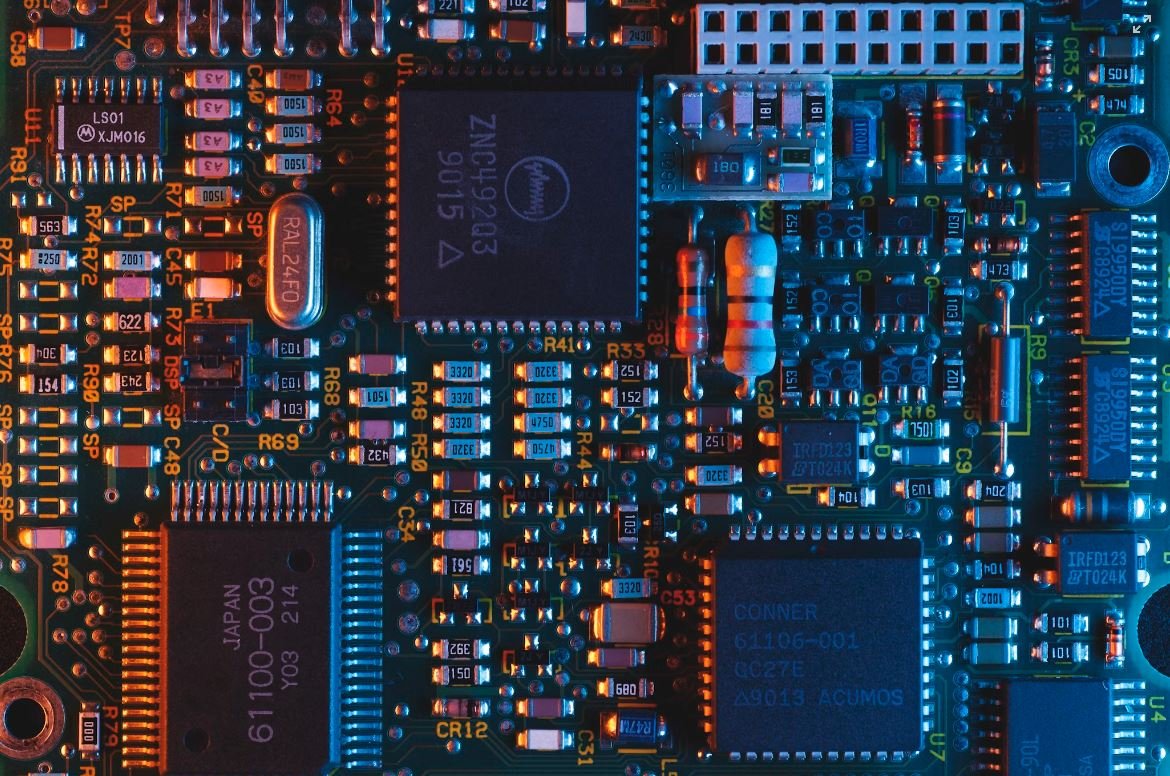Products of AI
Artificial Intelligence (AI) has rapidly advanced in recent years, leading to the development of various products that are revolutionizing industries and transforming the way we live and work. From virtual personal assistants to autonomous vehicles, AI is changing the world as we know it.
Key Takeaways
- AI is transforming industries and everyday life.
- Virtual personal assistants like Siri and Alexa are popular AI products.
- AI-powered chatbots are improving customer service experiences.
- Robotic process automation streamlines repetitive tasks.
- Autonomous vehicles and drones are utilizing AI for navigation.
**Virtual personal assistants**, such as Siri and Alexa, have become increasingly popular in households worldwide. These AI-powered products utilize natural language processing and machine learning algorithms to understand and respond to voice commands. *They can perform tasks like setting reminders, playing music, and answering questions, making them incredibly useful in our daily lives.*
AI has also revolutionized customer service through the use of **AI-powered chatbots**. These virtual assistants, embedded in websites and messaging platforms, enable businesses to automate customer interactions and provide instant support. *With the ability to handle a large volume of inquiries simultaneously, AI chatbots enhance customer experiences and save companies time and resources.*
One of the most significant impacts of AI products is in the area of **robotic process automation** (RPA). RPA technologies automate repetitive tasks and processes, freeing up human workers to focus on more complex and creative work. *By mimicking human interactions with digital systems, RPA improves efficiency, accuracy, and productivity across various industries.*
AI is also driving innovation in transportation with the development of **autonomous vehicles** and **drones**. These AI-powered machines leverage computer vision, sensors, and machine learning algorithms to navigate and make decisions in real-time. *Autonomous vehicles have the potential to reduce accidents and traffic congestion, while drones are being used for delivery services and aerial photography.*
The Impact of AI Products
AI products have had a profound impact on various industries and aspects of our lives. Let’s take a closer look at some of the key areas where AI is making a difference:
1. Healthcare
AI has the potential to transform healthcare by improving diagnostics, personalized medicine, and patient care. With machine learning algorithms, AI products can analyze vast amounts of medical data to identify patterns and make accurate predictions. This can aid in early disease detection, more effective treatments, and customized patient care plans.
2. Finance
In the financial sector, AI is being used for fraud detection, risk assessment, and algorithmic trading. AI-powered systems can analyze large volumes of financial data and identify anomalies or potential risks in real-time. This helps financial institutions make more informed decisions and improve overall security and efficiency in their operations.
3. Manufacturing
AI technologies like machine vision and machine learning algorithms are transforming the manufacturing industry. AI-powered robots can perform complex tasks with precision and speed, leading to enhanced productivity and quality control. Additionally, predictive maintenance using AI can reduce downtime and optimize production processes.
| Industry | Impact of AI |
|---|---|
| Healthcare | Improved diagnostics and personalized medicine |
| Finance | Fraud detection and risk assessment |
| Manufacturing | Enhanced productivity and quality control |
4. Education
AI is being utilized in education to personalize learning experiences, automate administrative tasks, and provide intelligent tutoring. Machine learning algorithms can adapt educational content to individual student needs, making education more engaging and effective. AI-powered educational platforms also enable teachers to provide personalized feedback and track student progress more efficiently.
5. Entertainment
AI is transforming the entertainment industry by enhancing content recommendation systems, creating virtual reality experiences, and enabling realistic computer-generated imagery (CGI). Machine learning algorithms analyze user preferences and behavior to deliver personalized content suggestions, while AI-powered virtual reality systems provide immersive gaming and storytelling experiences.
| Industry | AI Applications |
|---|---|
| Education | Personalized learning experiences and intelligent tutoring |
| Entertainment | Content recommendation and virtual reality |
As AI continues to advance, we can expect even more exciting and innovative products to enter the market. The potential of AI to transform industries and improve our daily lives is immense. With ongoing research and development, AI products will likely become more intelligent, efficient, and integrated into our society.
In Summary
- AI products like virtual personal assistants and chatbots improve our daily lives.
- They revolutionize industries such as healthcare, finance, and manufacturing.
- AI transforms education and entertainment by personalizing experiences.
- AI will continue to advance, leading to more innovative products in the future.

Common Misconceptions
1. AI Takes Over Jobs Completely
One common misconception about AI is that it will completely replace human jobs. While AI can automate certain tasks and improve efficiency, it does not mean that humans will become obsolete in the workforce. Some tasks require human creativity, critical thinking, and emotional intelligence, which AI currently lacks.
- AI can enhance productivity and automate repetitive tasks.
- AI can assist humans by providing recommendations and insights.
- AI cannot replicate human intuition and emotional intelligence.
2. AI Is Always Accurate and Unbiased
Another misconception is that AI systems are always accurate and unbiased in their decision-making. In reality, AI models are trained using data collected from the real world, which may contain biases or inaccuracies. This can lead to biased predictions or decisions made by the AI system.
- AI models can have biases due to biased training data.
- Accuracy of AI systems depends on the quality and diversity of the training data used.
- Continuously monitoring and auditing AI systems is crucial to ensure their fairness and accuracy.
3. AI Is a Single, Monolithic Entity
AI is often misunderstood as a single, monolithic entity with superhuman intelligence. In reality, AI is a collection of technologies and algorithms that are designed to perform specific tasks. There are different types of AI, such as narrow AI and general AI, each with its own capabilities and limitations.
- Narrow AI is designed for specific tasks and lacks general intelligence.
- General AI is hypothetical and refers to AI systems that could perform any intellectual task a human being can.
- AI technologies vary in their abilities and are built for specific purposes.
4. AI is a Recent Invention
Many people believe that AI is a recent invention; however, the concept of AI has been present for several decades. The term “Artificial Intelligence” was coined in 1956. While advancements in computing power and machine learning have accelerated the field in recent years, AI research and development have a long history.
- The term “Artificial Intelligence” was first used in 1956.
- AI research has been ongoing for several decades.
- Recent advancements have propelled AI capabilities, but the field has a long history.
5. AI Will Take Over the World and Turn Against Humans
Sci-fi movies and books often depict AI as a malevolent force that will eventually turn against humans and take over the world. This notion, known as “the AI apocalypse,” is a common misconception. AI systems are designed by humans and operate based on their programming. The fear of AI becoming self-aware and surpassing human control is more fiction than reality.
- AI operates based on its programming and lacks consciousness or self-awareness.
- The AI apocalypse is a scenario found in science fiction, not a likely reality.
- The ethical and responsible development of AI is essential to address potential risks.

Advancements in Healthcare
In recent years, artificial intelligence has revolutionized the healthcare industry by enabling significant advancements in various domains. These breakthroughs have improved patient care, diagnostic accuracy, and treatment effectiveness. The table below highlights some noteworthy products of AI in healthcare.
| Medical Product | Description | Achievements |
|---|---|---|
| AI-Powered Electronic Health Records | Intelligent systems that streamline patient data management and facilitate efficient healthcare operations. | Reduction in administrative workload and improved accuracy in record-keeping. |
| Medical Imaging Analysis | AI algorithms that analyze medical images, aiding in early detection and accurate diagnosis of diseases like cancer. | Increased detection rates, improved precision, and faster diagnosis times. |
| Virtual Nurse Assistants | Chatbot-based systems that provide personalized medical guidance, monitor patients’ health remotely, and answer common medical queries. | Accessible 24/7 support, reduced strain on healthcare professionals, and quick responses to patient inquiries. |
Enhancing E-Commerce
The widespread use of artificial intelligence has transformed the way we engage with online shopping platforms. Automated algorithms and intelligent chatbots have enhanced customer experiences, streamlined operations, and revolutionized the e-commerce landscape. Check out the table below for some examples of AI products in the realm of e-commerce.
| E-Commerce Product | Description | Benefits |
|---|---|---|
| AI-Powered Recommendation Systems | Algorithms that analyze customer preferences to provide personalized product recommendations, enhancing user satisfaction. | Improved customer retention, increased sales, and enhanced user experience. |
| Automated Customer Support | Chatbots that handle customer queries, provide support, and offer real-time assistance, reducing response times. | Enhanced customer service, increased efficiency, and 24/7 support availability. |
| Inventory Management | AI systems that predict demand patterns, optimize inventory levels, and reduce stockouts, ensuring smoother operations. | Reduced costs, minimized wastage, and improved supply chain efficiency. |
Revolutionizing Transportation
The application of artificial intelligence in the transportation industry has revolutionized various aspects, from smart traffic management to autonomous vehicles. The table below showcases some remarkable AI-driven products in transportation.
| Transportation Product | Description | Impact |
|---|---|---|
| Autonomous Vehicles | Vehicles equipped with AI algorithms to navigate and operate without human intervention, aiming for safer and more efficient transportation. | Potential reduction in accidents, improved traffic flow, and increased accessibility. |
| Smart Traffic Management | AI-powered systems that analyze real-time traffic data, optimize signal timings, and mitigate congestion efficiently. | Reduced travel times, improved efficiency, and decreased environmental impact. |
| AI-Powered Predictive Maintenance | Systems analyzing vehicle sensor data to predict maintenance needs and prevent breakdowns, optimizing fleet management. | Reduced downtime, minimized maintenance costs, and increased lifespan of vehicles. |
Transforming Finance
Artificial intelligence has significantly impacted the finance industry by improving decision-making processes, detecting fraud, and providing personalized financial advice. Explore the table below to learn about noteworthy AI products transforming the world of finance.
| Financial Product | Description | Advantages |
|---|---|---|
| Robo-Advisors | Automated investment platforms using AI algorithms to create and manage personalized investment portfolios for individuals. | Lower fees, improved accessibility, and tailored investment strategies. |
| Fraud Detection Systems | AI-based systems that analyze financial data in real-time to identify and prevent fraudulent transactions. | Enhanced security, reduced financial losses, and improved customer trust. |
| Algorithmic Trading | Automated trading systems utilizing AI algorithms to execute trades based on predefined strategies, leveraging vast amounts of market data. | Efficient and timely trades, reduced human error, and improved market analysis. |
Improving Customer Service
Artificial intelligence has transformed the customer service landscape by allowing businesses to provide efficient and personalized support to their customers. The table below showcases some AI-based products that have revolutionized customer service.
| Customer Service Product | Description | Benefits |
|---|---|---|
| Intelligent Chatbots | Chat-based AI systems that provide instant responses to customer queries, reducing the need for human intervention. | 24/7 availability, faster response times, and reduced wait times for customers. |
| Speech Recognition | AI technology that transcribes and analyzes customer speech, aiding in phone-based support and call center operations. | Improved call accuracy, reduced call duration, and enhanced customer satisfaction. |
| Sentiment Analysis | AI algorithms that analyze customer feedback and sentiments from various channels to gauge customer satisfaction levels. | Real-time feedback monitoring, proactive service improvement, and better understanding of customer needs. |
Advancing Manufacturing Processes
The integration of artificial intelligence in manufacturing has revolutionized production processes, enabling increased automation, optimization, and quality control. Take a look at the table below to discover AI products that have advanced the manufacturing industry.
| Manufacturing Product | Description | Advancements |
|---|---|---|
| Robotic Process Automation | AI-driven robots that automate repetitive manufacturing tasks, enhancing production efficiency and reducing human errors. | Increased productivity, improved accuracy, and enhanced worker safety. |
| Quality Control Systems | AI-powered systems that monitor, detect, and address defects during the manufacturing process, ensuring high product quality. | Reduced defect rates, improved efficiency, and enhanced customer satisfaction. |
| Supply Chain Optimization | AI algorithms that optimize supply chain processes by predicting demands, automating inventory management, and streamlining logistics. | Reduced costs, improved delivery times, and efficient resource utilization. |
Enhancing Education
Artificial intelligence is reshaping education by enabling personalized learning, intelligent tutoring systems, and efficient administrative procedures. The table below provides examples of AI products that have enhanced various aspects of the education sector.
| Education Product | Description | Impacts |
|---|---|---|
| Personalized Learning Platforms | AI-based systems that adapt content and learning experiences based on individual student needs and preferences. | Improved learning outcomes, increased engagement, and tailored educational experiences. |
| Intelligent Tutoring Systems | Virtual tutors leveraging AI to provide personalized guidance and support to students, facilitating individualized learning. | Enhanced academic performance, personalized feedback, and increased student motivation. |
| Administrative Automation | AI-powered systems that automate administrative tasks like grading, scheduling, and data management, freeing up educators’ time. | Reduced workload, improved efficiency, and enhanced resource utilization. |
Empowering Agriculture
The integration of artificial intelligence in agriculture has greatly empowered farmers, enabling precision farming, crop monitoring, and efficient resource management. Discover the AI products that have revolutionized the agricultural sector in the table below.
| Agricultural Product | Description | Benefits |
|---|---|---|
| Precision Farming | AI-driven systems that leverage sensors, satellite imagery, and data analysis to optimize farming practices on a field-by-field basis. | Reduced resource wastage, improved crop yield, and increased profitability for farmers. |
| Crop Disease Detection | AI algorithms that analyze images of plants to detect diseases and pests accurately, aiding in timely interventions. | Early disease detection, reduced crop loss, and lower reliance on chemical treatments. |
| Agricultural Robotics | Robots equipped with AI algorithms that perform tasks such as seeding, harvesting, and weeding autonomously, optimizing farming operations. | Increased efficiency, labor cost reduction, and precise farming practices. |
Improving Environmental Conservation
Artificial intelligence plays a crucial role in environmental conservation efforts by monitoring ecosystems, predicting climate patterns, and supporting sustainable practices. Explore the AI products that contribute to protecting our environment in the table below.
| Environmental Product | Description | Impacts |
|---|---|---|
| Wildlife Monitoring | AI-enabled camera traps and drones to monitor wildlife, identify species, and track population trends for conservation purposes. | Improved species surveillance, better protection strategies, and data-driven conservation decisions. |
| Climate Change Modeling | Utilization of AI algorithms to analyze and predict climate patterns, aiding in the development of more accurate climate change models. | Enhanced climate projections, better understanding of impacts, and informed sustainable planning. |
| Sustainability Optimization | AI systems that analyze resource consumption and recommend sustainable practices to individuals and businesses for reducing environmental impact. | Minimized ecological footprint, increased awareness, and adoption of sustainable behaviors. |
Improving Cybersecurity
As technology advances, so do cyber threats. Artificial intelligence has become an indispensable tool for bolstering cybersecurity measures by detecting vulnerabilities, identifying malware, and protecting sensitive data. The table below highlights AI products boosting cybersecurity in the digital age.
| Cybersecurity Product | Description | Benefits |
|---|---|---|
| Behavioral Analytics | AI algorithms that analyze user behavior patterns to identify abnormal activities and potential security breaches. | Enhanced threat detection, reduced false positives, and improved incident response. |
| Malware Detection | AI-powered systems that identify and neutralize malware by analyzing code patterns and behavior, providing proactive protection. | Improved security, faster response times, and reduced risks of data breaches. |
| Automated Vulnerability Assessments | AI-based tools that scan systems, networks, and applications for vulnerabilities and suggest mitigation strategies. | Efficient security assessments, faster patching, and proactive vulnerability management. |
Artificial intelligence has undeniably made significant contributions across various industries, from revolutionizing healthcare and transportation to enhancing e-commerce and education. The immersive combination of intelligence and automation has brought about unprecedented advancements, improving efficiency, accuracy, and overall user experience. As AI continues to evolve, its potential to shape a more intuitive and connected world remains limitless, paving the way for a future empowered by intelligent technology.
Frequently Asked Questions
What are the products created using AI?
Artificial Intelligence (AI) has given rise to various products that aim to enhance human capabilities and automate tasks. Some common products of AI include virtual assistants like Siri and Alexa, recommendation systems for personalized content, autonomous vehicles, fraud detection systems, and AI-powered healthcare devices.
How does AI contribute to virtual assistants like Siri and Alexa?
Virtual assistants like Siri and Alexa utilize AI algorithms to understand and interpret human voice commands, perform tasks, and provide responses. These AI systems employ natural language processing (NLP) and machine learning techniques to improve their accuracy over time.
What are recommendation systems and how are they powered by AI?
Recommendation systems analyze user data, preferences, and behavior patterns to suggest personalized content, products, or services. AI algorithms are employed to process large amounts of data, identify user preferences, and generate relevant recommendations based on similarity or patterns observed in the data.
How does AI contribute to autonomous vehicles?
AI plays a crucial role in enabling autonomous vehicles to navigate, detect objects, and make decisions in real-time. AI algorithms, such as deep learning and computer vision, help vehicles interpret sensor data from cameras, LIDAR, and radar systems, enabling them to understand their surroundings and safely navigate through roads.
What are fraud detection systems and how do they use AI?
Fraud detection systems employ AI techniques to analyze large amounts of data, identify suspicious patterns or anomalies, and flag potential fraudulent activities. AI algorithms can learn from historical data and adapt to changing fraud patterns, improving the accuracy and efficiency of fraud detection processes.
Can you provide examples of AI-powered healthcare devices?
AI-powered healthcare devices include wearable devices, like fitness trackers and smartwatches, that monitor vital signs and provide real-time health insights. Additionally, AI is utilized in medical imaging technologies, such as MRI and CT scans, for accurate diagnosis and disease detection.
How does AI contribute to customer service and chatbots?
AI is instrumental in customer service through the development of chatbots. Chatbots use AI algorithms, like natural language processing and machine learning, to understand and respond to customer inquiries or provide support. These AI-powered chatbots can handle a large volume of customer queries while delivering accurate and personalized responses.
Are there any AI applications in the retail industry?
AI has various applications in the retail industry, including demand forecasting, inventory management, personalized marketing, and customer experience enhancement. AI algorithms can analyze customer data, purchase history, and market trends to optimize inventory levels, offer tailored recommendations, and improve overall operational efficiency.
How does AI contribute to content creation and curation?
AI algorithms are used in content creation and curation to automate processes and enhance efficiency. AI can generate written content, such as news articles or product descriptions, based on input data and predefined patterns. It can also curate content by analyzing user preferences and recommending relevant articles, videos, or music based on individual interests.
What are some examples of AI-powered security systems?
AI-powered security systems include facial recognition systems, intrusion detection systems, and cybersecurity tools. Facial recognition systems use AI algorithms to identify and authenticate individuals based on their facial features, contributing to enhanced security in various settings. Intrusion detection systems employ AI techniques to monitor network traffic and identify potential security breaches, while cybersecurity tools utilize AI to detect and mitigate threats in real-time.





